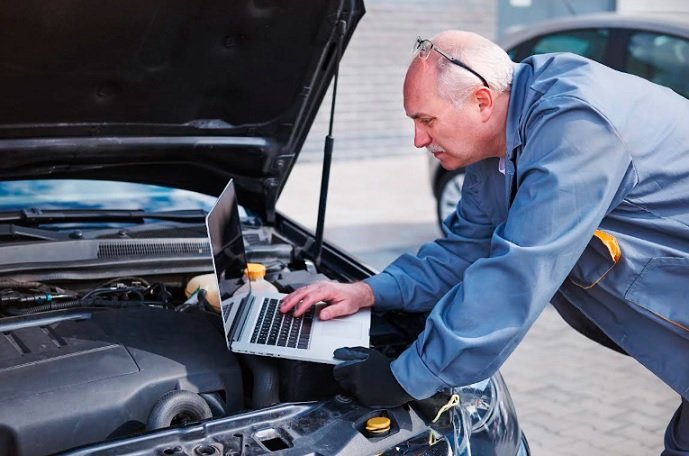For drivers in West Virginia, staying road-legal requires more than just up-to-date registration; it also involves completing a timely WV inspection. This state-mandated check ensures vehicles are safe, reliable, and environmentally compliant. However, many motorists may be unclear about how often these inspections are due or the specific details that affect their schedules. From annual requirements to grace periods and special rules for used and fleet vehicles, this guide breaks down the important points every driver should know about their inspection responsibilities.
Annual Requirement
1. Standard Yearly Inspections
Most passenger vehicles in West Virginia must complete a safety inspection once every 12 months. This annual check is critical for verifying that brakes, lights, tires, and emissions systems meet safety and environmental standards. Regular inspections can help catch minor problems before they escalate into costly repairs or dangerous driving conditions. Drivers who maintain this routine help ensure their vehicle remains safe and reliable for themselves and others on the road.
2. Safety First
Performing inspections annually allows any safety issues, such as worn brake pads, malfunctioning signals, or failing exhaust components, to be addressed promptly. This proactive approach can prevent accidents and costly breakdowns by ensuring that critical systems are functioning as intended. The inspection also serves as a reminder for general vehicle maintenance, encouraging owners to keep their cars in good shape year-round.
3. Legal Compliance
The state mandates these inspections not only for safety but to reduce pollution from older vehicles. Complying with the annual inspection requirement helps drivers avoid fines, citations, or even registration holds. Staying current with inspections is a simple yet effective way to meet West Virginia’s road safety and environmental standards.
Sticker Expiration Based on the Month of Inspection
1. Timing Matters
Many drivers mistakenly believe the inspection sticker’s expiration is tied to their vehicle purchase or registration date, but it’s actually based on the month the inspection was conducted. This means the clock for the next inspection starts ticking immediately after passing the inspection, regardless of ownership changes. Understanding this timing helps drivers plan inspections strategically and avoid unexpected expiration dates.
2. Maximizing Coverage
Scheduling inspections early in the month is often advised to make full use of the entire validity period. Drivers should track their inspection month carefully to avoid accidentally letting their sticker expire before renewing. Awareness of this timing helps drivers stay compliant without surprises.
30-Day Grace Period
1. Extra Time To Renew
West Virginia provides a 30-day grace period after the expiration of the inspection sticker. This grace period is designed to give drivers a short window to get their vehicle inspected without immediately facing penalties or citations. It offers helpful flexibility in case scheduling delays or other unforeseen circumstances arise.
2. Not A Free Pass
Despite this grace period, drivers should exercise caution, law enforcement officers still have discretion to stop and ticket vehicles with expired stickers. Particularly if the vehicle has other violations or appears unsafe, an expired inspection sticker within the grace period may still lead to fines. The grace period is best viewed as a buffer, not a guarantee against enforcement action.
3. Avoid Risk
The safest approach is to schedule and complete the inspection before the sticker expires to avoid any risk of fines or inconveniences. Drivers relying on the grace period increase their chances of getting pulled over, which can disrupt travel plans and lead to unnecessary expenses. Staying proactive with inspections is the most responsible and cost-effective choice.
What Happens When Buying a Used Car
1. Inspection Required
When purchasing a used car in West Virginia, the buyer must ensure the vehicle has a current inspection if the sticker has expired. The state requires a valid inspection before the title transfer to confirm the vehicle meets safety standards at the time of sale. This protects buyers by reducing the risk of inheriting unsafe or non-compliant vehicles.
2. Ensuring Safety
Having the vehicle inspected prior to ownership change helps identify any mechanical or safety defects that need attention. This step prevents potential hazards on the road and ensures the new owner isn’t liable for unsafe vehicle conditions. Buyers gain peace of mind knowing their purchase complies with state laws and safety expectations.
3. Buyer’s Responsibility
It’s important for buyers to verify the inspection status during the negotiation and factor inspection costs into their budget. Skipping this step can lead to unexpected expenses or delays in completing the title transfer. Being informed about inspection requirements empowers buyers to make smarter, safer purchasing decisions.
Fleet Vehicle Differences
1. Different Schedules
Vehicles operated as part of a fleet, such as taxis, rental cars, or delivery trucks, often have inspection requirements that differ from private passenger vehicles. Their schedules may be more frequent or dictated by business needs, mileage thresholds, or specific regulatory guidelines.
2. More Frequent Checks
Due to high mileage and heavy use, fleet vehicles can be subject to additional inspections or maintenance intervals. These regular checks help prevent breakdowns, maintain safety standards, and avoid disruptions in business operations. Fleet managers typically track these schedules closely to remain compliant with both state laws and company policies.
3. Consult Local Authorities
Commercial operators should stay in contact with local DMV offices or regulatory agencies to understand all inspection requirements that apply to their fleet. Failure to comply can result in penalties, fines, or operational restrictions that impact business efficiency. Staying well-informed is essential to managing fleet compliance effectively.
Conclusion
Understanding how often a WV inspection is required and the specific rules involved is essential for every West Virginia driver. Annual inspections, timing tied to inspection month, a cautious approach to the grace period, and special rules for used and fleet vehicles all ensure vehicles stay roadworthy and legal. Keeping inspections current protects drivers from fines and promotes overall road safety. For reliable and compliant service, always choose certified providers when scheduling a West Virginia car inspection.
Refresh Date: August 22, 2025



